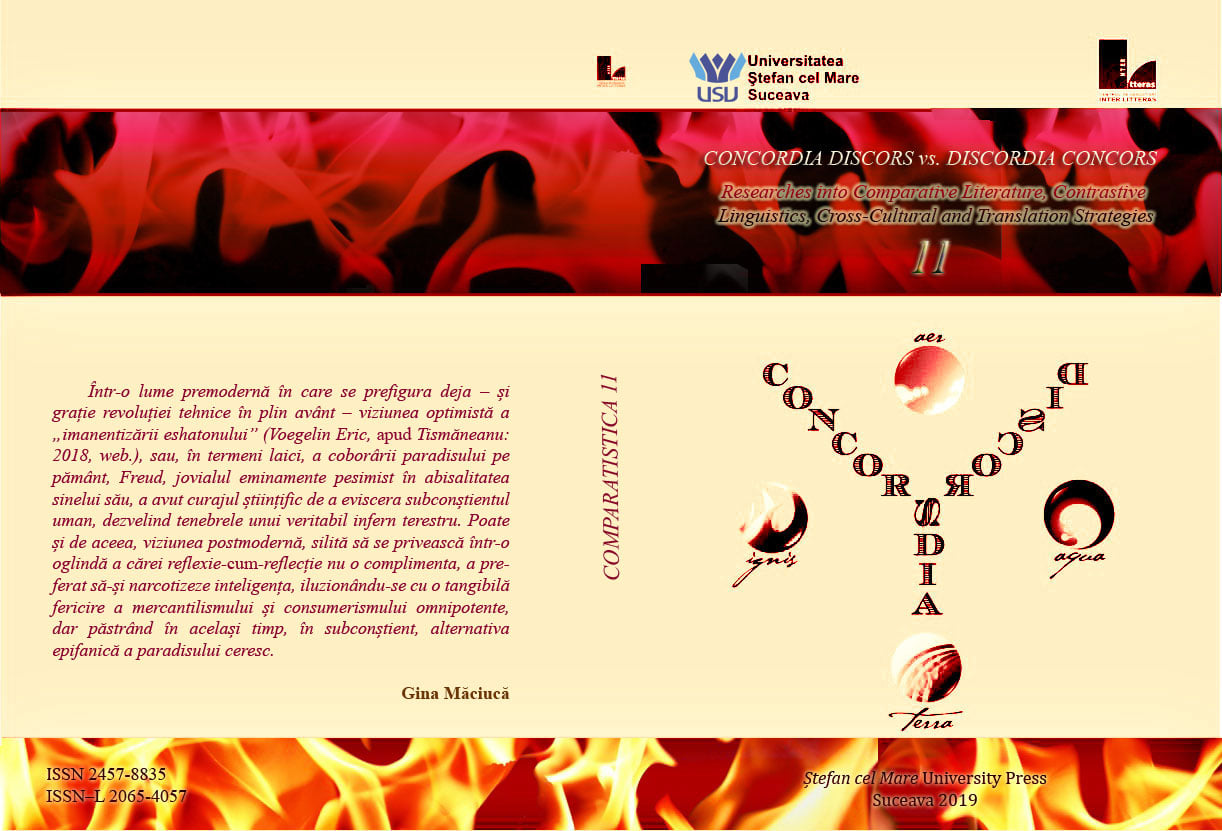Sailing through the Mists of Memory:
The Journey of a Japanese Boy
Sailing through the Mists of Memory:
The Journey of a Japanese Boy
Author(s): Livia-Mara SocoliucSubject(s): Language and Literature Studies, Theoretical Linguistics, Applied Linguistics, Studies of Literature
Published by: UNIVERSITATEA »ȘTEFAN CEL MARE« SUCEAVA
Keywords: trauma; complex of insularity; journey; identity; oblivion;
Summary/Abstract: A haunting feeling of loss lingers within our souls after reading KazuoIshiguro‘s works, memorable books about irreplaceable past and irretrievablefulfilment, isolation and hopelessness, offering but a painful catharsis ofemotion and sadness. The Remains of the Day, When We Were Orphans, andNever Let Me Go deal with ―universal themes‖, as Kazuo Ishiguro himselfdeclared in one of his interviews, touching the soft spots of the self, in search ofa way to deal with the sad reality check. Although Ishiguro‘s books aredeliberately set in different settings and literary genres, one can perceive acommon lingering of some sort, an elusive ―figure in the carpet‖. There willalways be an island, a journey and a belated coming back, lost identity andforced upon oblivion. Kazuo Ishiguro left Japan for England when he was five,which was to be a geographical and cultural rupture that he never managed tototally surpass. He deemed himself captive in England as, for many years, hisfamily thought they would go back, then he became captive in his own Japan,the imaginary one made up from second-hand memories. He finally grew toresignedly accept his belonging to his adoptive island. The cycle captivity –dream of deliverance – acceptance is a trait that cannot escape thepsychoanalytical mind of the contemporary reader.This article will attempt to sail through the recurring visual and lexicalpatterns which disclose the trauma that brought about the wonderful works ofthe Noble Prize - winning novelist
- Issue Year: 2019
- Issue No: 11
- Page Range: 145-169
- Page Count: 25
- Language: English

